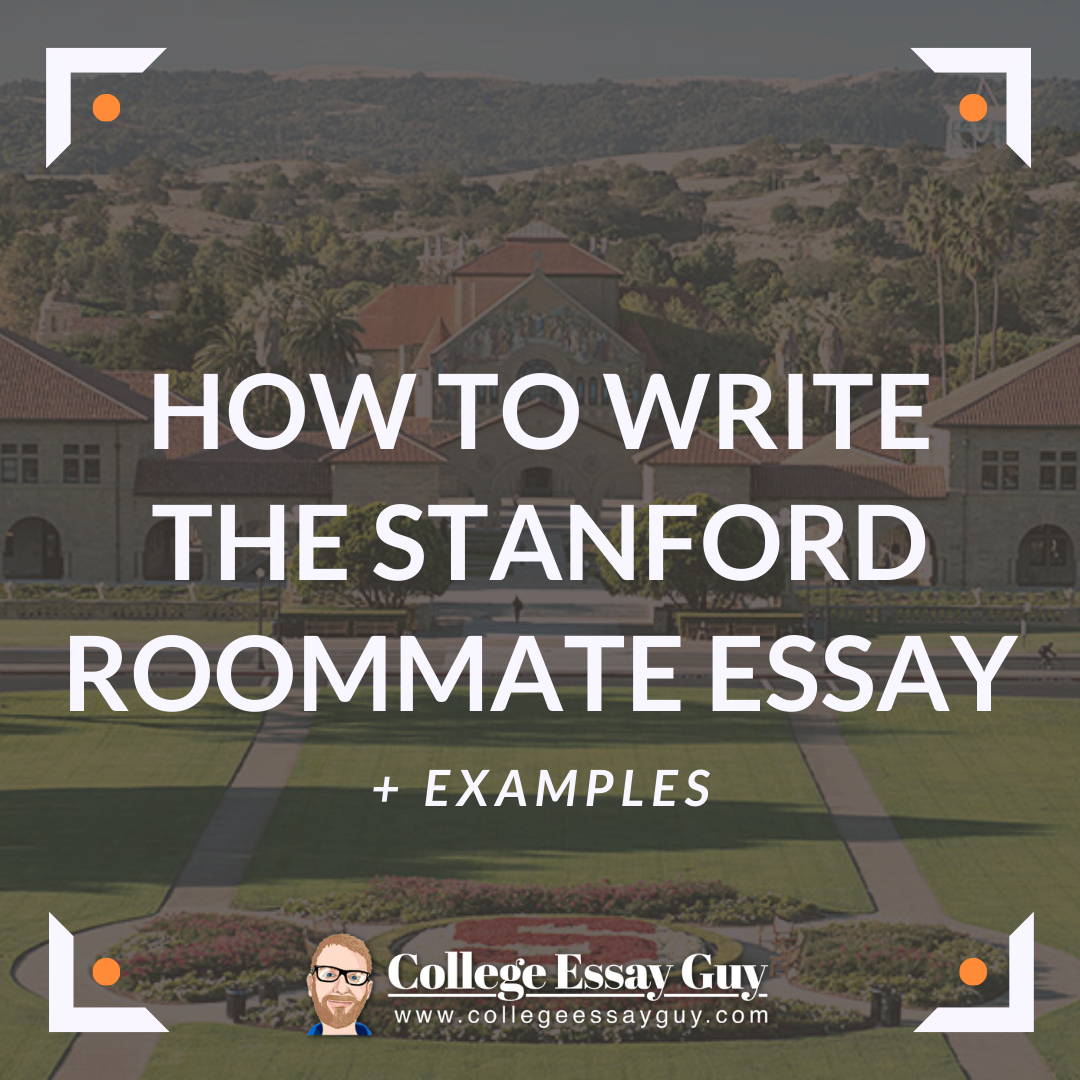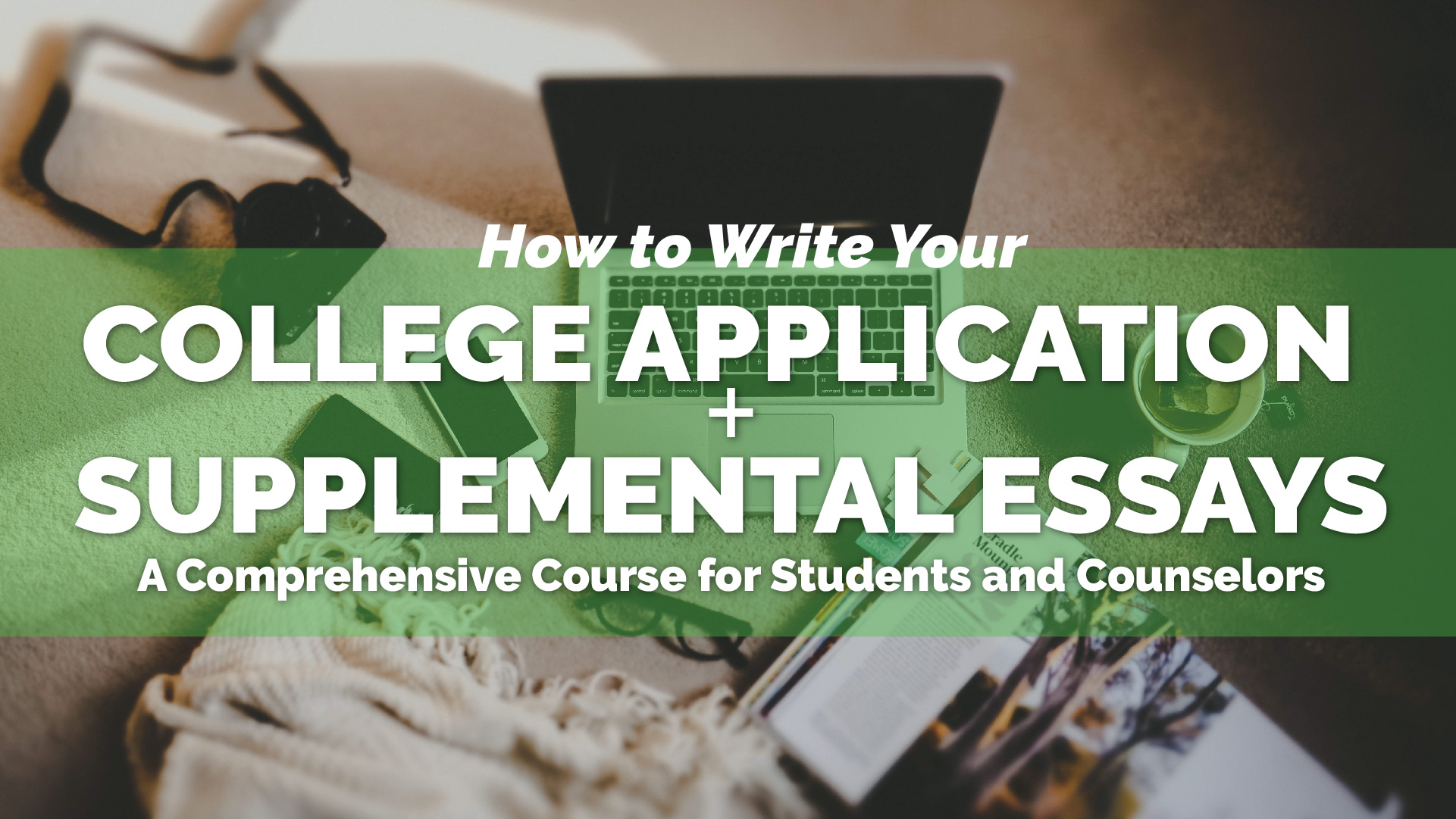Applying to Stanford? Great! The Stanford Roommate Essay can serve as a great way to introduce yourself to your future roomie and vice versa. Enjoy these examples and tips below on writing the Stanford Roommate Essay. Your first semester is going to go swimmingly!
Okay, this is not the ONLY way to write your Stanford (or any) roommate essay, but it is a GOOD way and it’s based on an essay that I think is GREAT. First, read the example essay, then we’ll talk about why it’s great and how she did it.
The prompt:
Virtually all of Stanford’s undergraduates live on campus. Write a note to your future roommate that reveals something about you or that will help your roommate—and us—know you better.
The essay:
Everybody has peculiarities that most people don’t know about. For example, I have a habit of pinching ear lobes. I also pour milk into my cereal, only to drain it out after soaking the cereal for a bit. Is that strange? Well, there’s more:
I have -2.75 vision but I hate wearing glasses because I feel confined and limited in my freedom to think. So you’ll see me squint quite often, trying to overcome my astigmatism--it’s not a death glare, I promise.
I’m also extremely tactile. I like to run my fingers over laser printing because I am amazed by my fingers’ ability to detect subtle impressions. This is why I hate wearing socks on carpet: my feet lose sensitivity. So I hope you don’t mind bare feet.
I have a fetish for things that smell nice, so I like to bury myself under fresh laundry just wheeled back from laundry room 8 (the one closest to our unit). I also alternate between three different shampoos just for the smell of it. So don’t be surprised if I ask to share our toiletry items; I’m just looking for variety.
Driving calms my nerves. Sometimes, my family and I go on midnight highway cruises during which we discuss weighty issues such as the reason people in our society can so adamantly advertise items like Snuggies. So I apologize if I keep you up late at night asking you to ponder the complex mysteries of our world.
Also, in my home, we have an open door policy--literally. Every door, excluding those of an occupied bathroom and the fridge, is always open. I hope you and I will be comfortable enough with each other--and with those around us--that we feel no need to hide behind bedroom doors.
Finally, I love shelves. They organize many different items under a unified structure and I find value in this kind of integrated diversity. And I love them as a metaphor: there is a place for everything, including even the quirkiest of our traits. That’s why no one should feel left out no matter how strange or odd they might think they are.
So, what are you like?
Why I like this essay:
I learn so much about the writer. I learn (in order, by paragraph) that she: is confident enough to admit she’s a little weird, values her freedom to think, is observant and sensitive to life’s small details, is great with wordplay, is ironic and self-deprecating even while pondering life’s mysteries, is willing to be emotionally open, values making order from chaos, (AND she’s smart enough to write an essay that actually creates order out of chaos--so her form matches her content).
How she wrote this essay:
She began with chaos. She brainstormed a list of 21 random details about herself using this exercise.
Then she created order. She organized the details into paragraphs by theme. She found, in other words, a way to connect the random facts--to put them on different “shelves” (each “shelf” = one paragraph).
Once she understood what she was doing, she cut some of the details that were less-revealing or extraneous and replaced them with better details that were more synecdochic. What’s a synecdoche? When a small part represents the whole. Kinda’ like an essence object. Look it up.
Remember: I'm not saying this is the only way to write your roommate essay, but it’s a pretty good way.
And if you want to get into Stanford, your roommate essay--like your main Common App essay--should demonstrate these three things:
Are you an interesting and intelligent person?
Will you bring something of value to the campus?
Can you write?
This student showed all three of those things and she got into Stanford.
(That along with her 2300 SAT and perfect grades. Plus she was first generation. #BTW.)
If you’ve already written a draft, read Part 2 of this post for a way to improve it.
Or just read Part 2 below because it's smart, funny and well-written--like your essay will be. #thankmygrandmaformyconfidence
Want to learn how to answer the short answer questions for many of the most selective colleges? Click here.
Part 2
Here’s one way how to improve your Stanford (or any) roommate essay if you’ve already written a draft:
1. Count how many details in your essay reveal something deep and true about you. (I count 14 good details in the example essay in Part 1 of this post.)
But which details reveal something deep and true? And what does a “deep and true” detail sound like? You decide.
Take a look at these details:
I don’t snore in my sleep.
I spent last summer at West Point and Annapolis, where I was told I’d be admitted if I applied. I decided not to so I could spend more time with my family.
I went to an LA Galaxy game with my friends two weeks ago.
I competed in rodeos for three years.
I love Justin Timberlake, NCIS, The Walking Dead, Avatar, and The Voice.
I have always been the girl who does the most push-ups, pull-ups, and sit-ups, but that’s probably because I’m usually the tiniest girl and have the least weight to deal with.
Which would you keep? Which could be cut?
Ultimately it’s a matter of personal preference, but here are two tips:
Notice when two or three details are communicating the same thing. Example: “Running relaxes me” and “I’m on the track team” aren’t clearly different. Cut one.
Specificity usually wins. Example: “I have a wide collection of crystals, American coins predating the 1940’s, and ammonite fossils in my closet” is better than “I collect things.”
And two personal preferences:
Keep pop culture references to a minimum. One or two is okay. Five is, I think, too many. Mix it up with some old school or classic stuff. Example: Jay-Z and Al Green (or) Wreck-it Ralph and Fellini’s 8 ½.
Maybe don’t use exclamation points more than twice. Unless you’re being ironic.
Now look back at your own essay. Which are the good (keeper) details and which are kind of weak? Cut the weak ones. So much about you is interesting and beautiful and different. Don’t settle for boring details in this essay. Or in any essay. Or in life.
2. Once you’ve identified your specific, unique details, decide if you want to include MORE details and LESS explanation or the opposite.
Example of MORE details and LESS explanation:
In my room, a Korean ballad streams from American-made computer speakers, while a cold December wind wafts the smells of ramen and leftover pizza. On the wall in the far back, a Korean flag hangs besides a Led Zeppelin poster.
The author’s point is pretty clear, and though he doesn’t need to explain it, he does later:
...This mélange of cultures in my East-meets-West room embodies the diversity that characterizes my international student life.”
Those details could stand on their own, though, and the “show” requires little “tell.”
Example of a FEWER details and MORE explanation:
I love playing piano. I play it when I volunteer at the hospital, in senior resident homes, and at my Church. Every time, after I play at the designated location, both the elderly and the children smile contentedly, emanating a happiness that I have never seen elsewhere—a joy that everyone should be able to experience.
Which do you prefer? Again, it’s a matter of personal preference.
For my money, though, “show” is greater than “tell” for this kind of essay.
And most personal essays.
And life.









